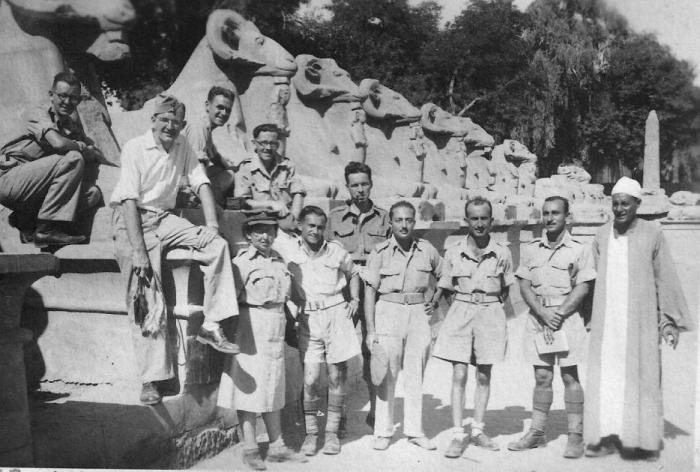C. Michael Patton1, Theologe und Gründer von Credo House, hat diesen Artikel auf seinem Blog veröffentlicht, und ich fand ihn so hilfreich für mein Verständnis von Sünde, dass ich mich entschlossen habe, ihn zu übersetzen und hier zu posten.
Ich habe Michael per E-Mail um Erlaubnis gebeten, konnte ihn aber bisher nicht erreichen. Daher nehme ich seine Zustimmung an und poste den Artikel trotzdem – ich kann ihn ja jederzeit wieder entfernen, falls er etwas dagegen hat.
Rotes Zeug: Warum wir Alles für Nichts eintauschen:
Hamartiologie für den Rest von uns
von C. Michael Patton
Wenn mich jemand in meinem normalen Alltag – in meiner selbsternannten Rolle als “Theologie-Zar” – danach fragen würde, würde ich ihm wahrscheinlich eine Maschinengewehr-artige Übersicht über die Sündenlehre aus dogmatischer Sicht geben. Zuerst würde ich es wahrscheinlich als “Hamartiologie” definieren. (Ja, vielleicht auch, um Eindruck zu schinden – mit 52 bin ich darüber noch nicht hinweg.)
Aber lieber wäre mir, dass sie die reiche Geschichte der christlichen Theologie im tiefen Nachdenken über Sünde kennenlernen.
Dann würde ich loslegen: persönliche Sünde, angerechnete Sünde, ererbte Sünde, Todsünden vs. lässliche Sünden, Sünden der Unterlassung vs. Sünden der Begehung — und der Vollständigkeit halber würde ich noch ein weiteres bedeutungsvolles Fremdwort fallen lassen: Augustinus’ concupiscentia (das musst du selbst nachschlagen).
Das ist es, was mir in den Sinn kommt.
Aber obwohl diese Unterscheidungen wichtig sind, würden sie den durchschnittlichen Menschen heute wahrscheinlich nur verwirren. Denn heutzutage ist das Wort Sünde nicht mehr nur ein altmodischer Begriff, der einen als “Fundamentalisten” dastehen lässt (wie zu meiner Zeit) — es ist fast schon ein vergessenes Relikt. Früher galt man als altmodisch, wenn man darüber sprach, heute kennen viele kaum noch die Bedeutung. Sie haben das Wort vielleicht schon mal gehört, aber es ist ihnen genauso fremd wie das Wort “Hamartiologie”.
(Hamartiologie bedeutet übrigens “die Lehre von der Sünde”, abgeleitet vom griechischen Wort ἁμαρτία (hamartía) – Sünde. Damit habe ich meinen kleinen R.C.-Sproul-Moment auch erledigt!)
Deshalb ist es meist besser, mit der einfachsten und praktischsten Definition zu beginnen:
Sünde ist das Verfehlen des Ziels.
So habe ich es immer gehört. So hat es auch mein Griechisch-Professor im Seminar definiert.
Stell dir einen Pfeil vor, der auf eine Zielscheibe abgeschossen wird, aber das Zentrum verfehlt.
Nur dass es hier darum geht, das Ziel zu verfehlen, das Gott für seine geliebten Kinder gesetzt hat.
Diese Definition ist gut – sehr gut. Aber ehrlich gesagt, denke ich, es gibt noch eine bessere Formulierung – eine, die Gottes Perspektive näherkommt. (Natürlich muss ich das behaupten!)
Hier ist meine Definition:
Sünde ist eine wertlose Entscheidung.
Das rote Zeug schlucken
Es gibt – in meinem Kopf – kein besseres Bild dafür als die uralte Geschichte von Jakob und Esau.
Und ja, sie ist wirklich uralt — aber für die meisten Menschen heute werden sie wahrscheinlich noch nie gehört haben..
Und das ist okay, denn wenn man erst einmal versteht, was passiert, vergisst man es nie wieder. Außerdem ist es auf eine tragische Weise auch irgendwie lustig.
Die Charaktere:
Zwei Brüder — der listige jüngere Bruder Jakob und der törichte ältere Bruder Esau.
Wie damals üblich, sollte der ältere Bruder das Familienerbe erhalten — einschließlich eines göttlichen Versprechens, eines Bundessegens, der die ganze Welt betreffen würde. Dies wurde Erstgeburtsrecht genannt.
Die Szene:
Der Tag neigt sich seinem Ende zu in den Hügeln Kanaans. Jakob — das Muttersöhnchen mit weichen Händen und einer Begabung fürs Kochen — ist zu Hause und rührt in einem Kochtopf. Gleichzeitig heckt er einen Plan aus, um seinen Bruder hereinzulegen. Er sorgt dafür, dass der köstliche Duft seines Essens sich ausbreitet.
Währenddessen kommt Esau, der raue Jäger, durch die Tür gestürzt. Er war den ganzen Tag auf der Jagd (ohne Erfolg) — mit leeren Händen, verschwitzt, ausgehungert und halb überzeugt, dass er sterben wird. Er riecht das Essen. Er sieht Jakob am Herd, in einem Topf mit „rotem Zeug“ rühren, wie er es nennt. Und ohne nachzudenken, zeigt er darauf und… nun, lesen wir selbst:
Genesis 25,29–34
Jakob kochte ein Gericht. Da kam Esau vom Feld und war müde und sprach zu Jakob: Lass mich schnell von dem Roten essen, dem Roten da; denn ich bin müde. Daher heißt er Edom.
Aber Jakob sprach: Verkaufe mir zuvor dein Erstgeburtsrecht.
Esau antwortete: Siehe, ich muss doch sterben; was soll mir da das Erstgeburtsrecht?
Jakob sprach: So schwöre mir zuvor. Und er schwor ihm und verkaufte so Jakob sein Erstgeburtsrecht.
Da gab ihm Jakob Brot und das Linsengericht, und er aß und trank und stand auf und ging davon.
So verachtete Esau sein Erstgeburtsrecht.
Esau tauscht das Ewige gegen das Sofortige.
Er gibt das Erstgeburtsrecht — das Erbe, den Segen, die Verheißungen Gottes — für etwas her, das er nicht einmal richtig benennen kann. Er nennt es einfach „das rote Zeug“: „Das da… das Rote… was auch immer das ist… ist mir egal… Hauptsache, ich bekomme es jetzt.“
Und genau das ist die beste Definition von Sünde, die es gibt.
Denn das tut Sünde:
Sie lockt uns.
Sie überzeugt uns, dass wir sie „unbedingt brauchen — oder sterben“.
Sie spielt mit unserem Hunger, unserer Schwäche, unserer Verzweiflung.
Und in diesem Moment vergessen wir den Wert dessen, was wir bereits haben.
Der Tausch sieht immer notwendig aus.
Aber danach trifft uns die Wahrheit:
Wir haben alles für nichts eingetauscht.
Sünde ist eine wertlose Entscheidung.
Sie bedeutet, das abzulehnen, was Gott uns anbietet — das Potenzial, das Gott in uns sieht — für etwas Wertloses.
Eine Vater-Sohn-Illustration
Hier ein kleines Beispiel:
Ein Vater kommt in das Zimmer seines Sohnes und sieht ihn völlig vertieft in ein Videospiel.
Er ruft ihm zu:
-
„Willst du eine Bibelstunde mit mir machen?“ — „Nein.“
-
„Willst du mit Freunden wandern gehen?“ — „Nein.“
-
„Willst du ein Buch lesen?“ — „Nein.“
-
„Willst du mit mir essen gehen?“ — „Nein.“
-
„Willst du trainieren, Basketball spielen, jagen, angeln oder einfach nur Zeit mit mir verbringen?“ — „Nein.“
Egal, was der Vater vorschlägt — etwas Besseres, Tieferes, Bedeutenderes — die Antwort bleibt dieselbe.
Der Junge ist fixiert auf den Bildschirm und merkt nicht, was er verpasst.
Aber der Vater weiß es.
Er weiß, was sie hätten teilen können.
Er weiß, welche Erinnerungen sie hätten schaffen können.
Er weiß, welches Lachen, welche Verbindung, welches Wachstum möglich gewesen wäre.
Es ist keine offene Rebellion.
Es ist kein Hass.
Aber es tut weh.
Denn wenn du jemanden liebst, schmerzt es, wenn er die guten Dinge verpasst, die du für ihn bereithältst.
Und genau so — glaube ich — sieht Gott uns.
Gott hat uns für etwas Großartiges erschaffen:
Für Gemeinschaft, nicht für Flucht.
Für Freude, nicht für Ablenkung.
Für Herrlichkeit, nicht Langeweile.
Er hat uns geschaffen, um Gnade über Gnade zu empfangen und in der Berufung zu leben, die er seit Anbeginn der Zeit für uns vorbereitet hat.
Ein paar Verse dazu:
„Der Dieb kommt nur, um zu stehlen und zu schlachten und zu verderben; ich bin gekommen, damit sie Leben haben und es im Überfluss haben.“
(Johannes 10,10)
„Du wirst mir den Weg des Lebens zeigen; vor deinem Angesicht sind Freuden in Fülle, zu deiner Rechten Wonne ewiglich.“
(Psalm 16,11)
„Er, der doch seinen eigenen Sohn nicht verschont hat, sondern ihn für uns alle dahingegeben hat — wie wird er uns mit ihm nicht auch alles schenken?“
(Römer 8,32)
Er will uns nicht das Schlechte zeigen, sondern das Beste.
Aber jedes Mal, wenn wir sündigen, treffen wir eine wertlose Entscheidung.
Wir gehen daran vorbei.
Wir sagen: „Nein, danke.“
Wir tauschen die Ewigkeit für das Jetzt.
Für rotes Zeug.
Und Gott, wie ein Vater, sieht es — und es tut ihm weh.
Nicht, weil wir ein abstraktes Gesetz gebrochen haben.
Sondern weil wir ihn selbst zurückgewiesen haben.
Meine eigene rote Suppe
Warum hat Esau diesen Handel gemacht?
Ich würde gerne sagen, dass ich es nicht verstehe — aber ich verstehe es.
Ich bin mindestens genauso gut darin, wenn nicht sogar besser, ein Erstgeburtsrecht für irgendein rotes Zeug einzutauschen.
Es gab eine Zeit, da hatte Gott mein Wirken eindeutig gesegnet.
Das Credo House2 wuchs.
Das Credo House Coffee Shop3 — ein Traum, für den ich gebetet und den ich mir sehnlichst gewünscht hatte — war endlich Wirklichkeit geworden.
Ich erinnere mich noch daran, wie ich damals im Seminar in einem Kirchengeschichte-Unterricht saß und dachte:
“Gott, lass mich allen das zeigen. Lass mich ihnen die Schätze offenbaren, die ich gerade entdecke.”
Es fühlte sich an, als hätte ich Gold auf einem Feld gefunden — und alles, was ich wollte, war, es mit der Welt zu teilen.
Ich hatte eine Richtung.
Ich hatte eine Berufung.
Und eine Zeit lang begannen sich erste Früchte zu zeigen.
Aber dann wurde das Leben schwer.
Es waren nicht nur Kämpfe im Dienst.
Es ging tiefer — es war härter.
Familiäre Tragödien.
Ein Körper, der zu versagen begann, besonders mein Rücken.
Ein überwältigendes Gefühl, dass alles schneller zerfiel, als ich es retten konnte.
Und genau da traf ich eine wertlose Entscheidung.
Ich griff zu Schmerztabletten.
Am Anfang ging es bei den Tabletten nur um den Schmerz.
Mein Rücken tat höllisch weh — und die Tabletten wirkten.
Aber sie betäubten nicht nur meinen Körper, sie betäubten auch den Schmerz meiner Seele.
Unter dem Einfluss der Tabletten fühlte sich das Leben nicht mehr so schwer an.
Der Druck, die Angst, die Traurigkeit — all das trat in den Hintergrund, auch wenn es nur kurz war.
Zum ersten Mal seit Langem konnte ich wieder atmen.
Es war nicht nur körperliche Erleichterung.
Es war emotionale Erleichterung.
Spirituelle Erleichterung.
Die Tabletten flüsterten mir leise Versprechen zu — Versprechen, die ich unbewusst hörte:
Und eine Zeit lang glaubte ich ihnen.
Ich war nicht auf der Suche nach einem Kick.
Ich wollte nicht rebellieren.
Ich war einfach müde.
Müde vom Schmerz.
Müde vom Hoffen.
Müde davon, zu kämpfen und trotzdem unterzugehen.
Die Tabletten machten das alles erträglicher — sie gaukelten mir vor, dass Überleben möglich sei.
Aber es war ein Überleben ohne Vertrauen.
Erleichterung ohne Wiederherstellung.
Eine Abkürzung, die ins Nichts führte.
Sie boten mir Frieden — aber es war ein Frieden ohne Fundament.
Ein falscher Frieden — rotes Zeug, das im Moment gut aussah, aber mich am Ende leerer zurückließ.
Ich wusste, was Gott mir angeboten hatte.
Ich wusste um das Erstgeburtsrecht — die Berufung, die Mission, den Sinn.
Aber ich tauschte es ein.
Ich tauschte es gegen rotes Zeug.
Überleben statt Vertrauen.
Falscher Trost statt echtes Leben.
Und genau wie Esau lernte ich die Wahrheit zu spät:
Wir haben alles für nichts eingetauscht.
„Sie haben die Wahrheit Gottes mit der Lüge vertauscht.“
(Römer 1,25)
Was ist dein rotes Zeug? — Jeder hat seins
Ich hasse es, noch eine Illustration einzuführen — aber diese hier versteht wirklich jeder:
Sünde ist nicht nur eine wertlose Entscheidung.
Sünde ist nicht nur „rotes Zeug“.
Sünde ist auch so etwas wie spirituelles Impulskaufen.
Du kennst das Gefühl.
Du schlenderst durch ein Geschäft.
Plötzlich siehst du etwas, das du nicht brauchst und nicht geplant hast — aber es ruft nach dir.
Du legst es trotzdem in deinen Einkaufswagen.
Vielleicht suchst du Trost.
Vielleicht Bequemlichkeit.
Vielleicht einfach das Gefühl, dass du es verdienst.
Aber tief im Inneren weißt du, dass es eine schlechte Entscheidung ist.
Und kaum hast du es gekauft, setzt die Reue ein:
Käuferreue.
Wir alle kennen dieses Gefühl.
Und wenn wir nach der Sünde leben, ist es, als würden wir innerhalb dieser Käuferreue existieren — sie rechtfertigen, so tun, als wäre es eine gute Entscheidung gewesen, während wir tief im Inneren wissen, dass es nicht so ist.
Sünde verspricht Trost, aber sie liefert Leere.
Sie verspricht Erleichterung, aber sie hinterlässt Bedauern.
Sie ist spirituelles Impulskaufen in seiner schlimmsten Form.
Jeder hat etwas im Einkaufswagen.
Etwas, wonach wir ohne Nachdenken gegriffen haben.
Es sitzt da — macht Versprechen, nimmt Platz ein und zieht uns von den besseren Dingen weg.
Was ist es bei dir?
-
Ein Moment der Lust, wenn niemand zusieht?
-
Das endlose Scrollen durch Social Media?
-
Der Drink, der dich vergessen lässt?
-
Der Groll, den du nicht loslassen willst?
-
Das Kleid, das dir Anerkennung bringen soll?
-
Der Wutausbruch, der Erleichterung verschafft?
-
Der Trost, zu dem du greifst, statt zu Gott?
Wir alle haben unser “rotes Zeug”.
Und hier ist die Wahrheit:
Gott sieht es.
Er weiß es.
Wenn das rote Zeug zu Hass wird
Am Ende der Geschichte steht dieser erschütternde Satz — ein Satz, den man leicht überliest:
„So verachtete Esau sein Erstgeburtsrecht.“
(Genesis 25,34)
Das passiert, wenn wir oft genug das rote Zeug wählen.
Wenn wir immer wieder das eintauschen, wofür wir geschaffen wurden, gegen das, wofür wir nie gedacht waren.
Dann geschieht etwas Schlimmes:
Wir hören nicht nur auf, das Bessere zu bevorzugen — wir fangen an, es zu hassen.
Lass mich das noch einmal klar wiederholen:
Nicht nur: „Das ist nichts für mich.“
Nicht nur: „Ich lasse es lieber.“
Sondern: Wir fangen an, es zu verachten.
Warum?
Weil Schuld unser Herz verändert.
Wenn wir tief im Inneren wissen, dass wir etwas Gutes verraten haben — wenn wir uns betäubt haben und Bürger eines Landes geworden sind, in dem nur wertlose Entscheidungen zählen — dann bleibt uns oft nur eine Verteidigung:
Wir wenden uns gegen das Gute.
Wir sehen etwas Wertvolles im Einkaufswagen eines anderen — und wir lachen spöttisch.
Wir sehen jemanden, der im Licht wandelt — und wir spotten.
Wir begegnen der Wahrheit — und wir zucken zusammen.
Wir sehen Schönheit — und sie widert uns an.
Das ist es, was unverheilte Schuld bewirkt:
Sie verwandelt Ehrfurcht in Bitterkeit.
Sie macht aus Sehnsucht nach Gutem eine Abscheu dagegen.
Gott ist immer bereit, dich zurückzukaufen: Die Zeit ist jetzt
Bist du an diesem Punkt?
Selbst wenn ja:
Gott kann dich immer noch zurückbringen.
Selbst wenn du dein Erstgeburtsrecht eine Million Mal eingetauscht hast,
selbst wenn du vom roten Zeug bedeckt bist —
die Gnade Gottes steht immer noch.
Durch das, was Christus für dich am Kreuz getan hat, gibt es einen Weg zurück.
Hier kommt mein Lieblingsvers über das „rote Zeug“:
„Den, der von keiner Sünde wusste, hat er für uns zur Sünde gemacht, damit wir in ihm die Gerechtigkeit Gottes würden.“
(2. Korinther 5,21, LUT)
Und wenn du mir ein bisschen kreative Freiheit erlaubst, würde ich es so formulieren — in der Neuen Michael-Standard-Übersetzung (NMSÜ):
„Er ließ Christus — der nie rotes Zeug gekauft hat, der immer das Richtige gewählt hat, der niemals das Erstgeburtsrecht eingetauscht hat — all das rote Zeug, das an dir klebt, auf sich nehmen, damit es so ist, als hättest du nie welches gehabt. Und dann legte er dir das Erstgeburtsrecht wieder in deinen Einkaufswagen.“
(2. Korinther 5,21, NMSÜ)
Christus hing am Kreuz, um einen hohen Preis für deine Sünde zu zahlen — für all deine wertlosen Entscheidungen.
Und seine Auferstehung beweist, dass das Geschäft besiegelt ist.
Dein Vater steht bereit — mit offenen Armen — und wartet darauf, dass du den Tausch rückgängig machst.
Gib es Christus.
Leg alles rote Zeug bei ihm ab.
„In ihm haben wir die Erlösung durch sein Blut, die Vergebung der Vergehungen, nach dem Reichtum seiner Gnade.“
(Epheser 1,7)
„Kehre zurück zu mir, denn ich habe dich erlöst.“
(Jesaja 44,22)
_____________________
- C. Michael Patton ist ein amerikanischer Theologe, Autor und Pädagoge, der sich dafür einsetzt, christliche Theologie für Laien zugänglich zu machen. Er hat einen Th.M.-Abschluss in neutestamentlichen Studien vom Dallas Theological Seminary sowie einen B.A.-Abschluss in Biblischer Theologie von der University of Biblical Studies and Seminary in Bethany, Oklahoma.
Michael entwickelte The Theology Program, ein sechsteiliges systematisches Theologiekurrikulum für Gemeindemitglieder, und gründete das Credo House of Theology, ein einzigartiges Café und Veranstaltungszentrum in Edmond, Oklahoma, das dafür gedacht ist, theologische Gespräche in einer einladenden Atmosphäre zu fördern. ↩
- Das Credo Haus ist Michaels Mittel, um Theologie für normale Gemeindeglieder zugänglich zu machen ↩
- Das Credo Haus Coffee Shop ist ein Lokal, in dem man in angenehmer Atmosphäre Theologie diskutieren, Vorträge anhören, theologische Bücher lesen kann ↩

 Aus der Überlegung, daß der Karfreitag zurecht als der wichtigste christliche Feier- bzw. Gedenktag zu sehen ist, da es ohne Karfreitag, also ohne Jesu Tod, auch keine Auferstehung, und damit weder Ostern noch Pfingsten, noch überhaupt die Kirche gegeben hätte, haben einige evangelische Christen das Volksbegehren
Aus der Überlegung, daß der Karfreitag zurecht als der wichtigste christliche Feier- bzw. Gedenktag zu sehen ist, da es ohne Karfreitag, also ohne Jesu Tod, auch keine Auferstehung, und damit weder Ostern noch Pfingsten, noch überhaupt die Kirche gegeben hätte, haben einige evangelische Christen das Volksbegehren 
 Der Wendepunkt des Leben der meisten jüdischen Flüchtlinge in Innsbruck kam mit dem überwältigenden Besuch der Jüdischen Brigade auf ihrem Weg nach Deutschland durch Innsbruck. Die Einheiten der Brigade kamen in Lastwagen, die mit blauen Davidssternen geschmückt waren.
Der Wendepunkt des Leben der meisten jüdischen Flüchtlinge in Innsbruck kam mit dem überwältigenden Besuch der Jüdischen Brigade auf ihrem Weg nach Deutschland durch Innsbruck. Die Einheiten der Brigade kamen in Lastwagen, die mit blauen Davidssternen geschmückt waren.